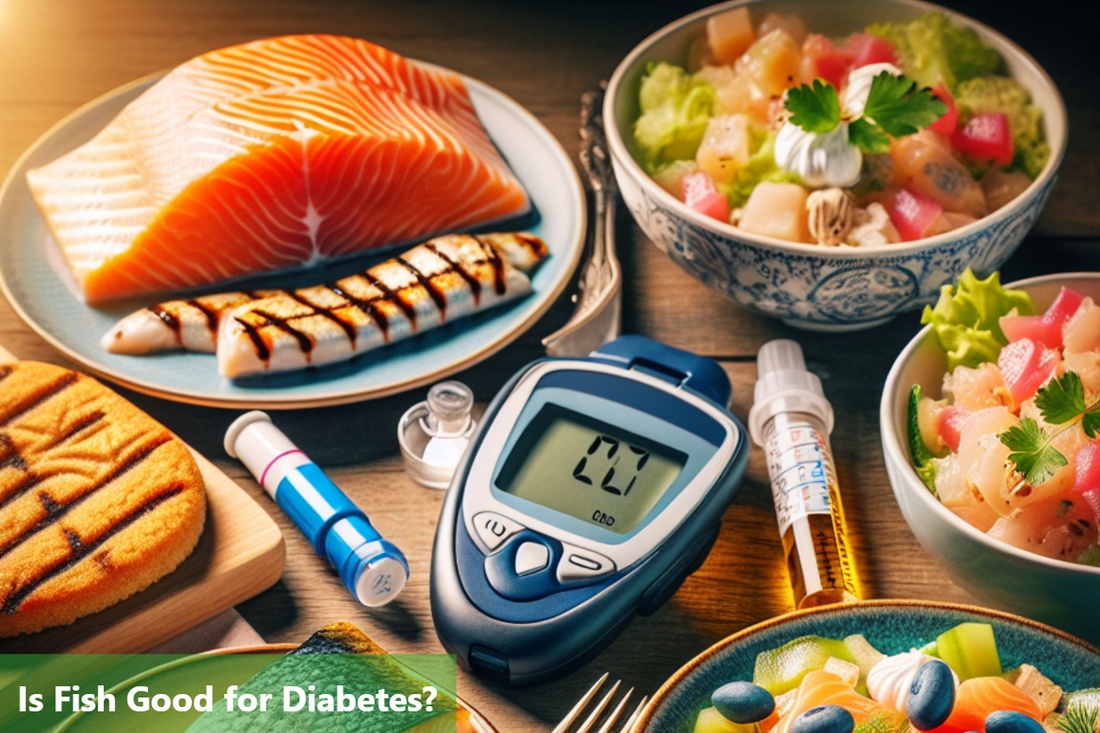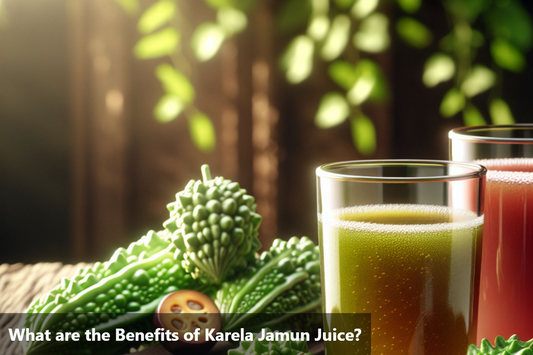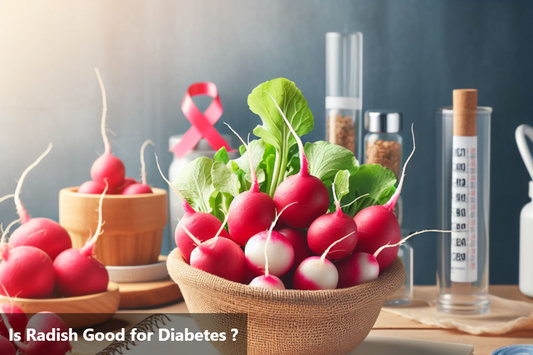Fish has long been hailed as a nutritious food choice for individuals managing diabetes. The question often arises - is fish good for diabetes? The answer is a resounding yes. In this introduction, we will delve into the importance of diet in effectively managing diabetes, with a specific focus on the beneficial role of fish.
Diet plays a crucial role in the management of diabetes, as it directly impacts blood sugar levels and overall health. Incorporating the right foods can make a significant difference in controlling the condition and reducing complications. Among these beneficial foods, fish stands out for its numerous advantages.
Fish is rich in essential nutrients such as omega-3 fatty acids, lean protein, and vitamin D, all of which are beneficial for individuals with diabetes. These nutrients can help improve insulin sensitivity, reduce inflammation, and lower the risk of heart disease - a common complication of diabetes.
Types of Indian Fishes Recommended for Diabetes
-
Mackerel (Bangda):
-
Mackerel is rich in omega-3 fatty acids, which can help improve insulin sensitivity and reduce the risk of cardiovascular disease associated with diabetes.
-
It is also a good source of protein and contains essential vitamins and minerals such as vitamin D, vitamin B12, selenium, and potassium.
-
-
Sardines (Pedvey):
-
Sardines are high in omega-3 fatty acids, which have anti-inflammatory properties and can help lower blood sugar levels and improve insulin sensitivity.
-
They are also rich in protein, calcium, vitamin D, and vitamin B12, making them a nutritious choice for individuals with diabetes.
-
-
Pomfret (Pompano):
-
Pomfret is low in saturated fat and calories, making it a heart-healthy choice for individuals with diabetes.
-
It is a good source of protein and contains essential nutrients such as vitamin D, vitamin B12, selenium, and phosphorus.
-
-
Catla (Katla):
-
Catla is a freshwater fish commonly consumed in India and is low in calories and fat, making it suitable for diabetes management.
-
It is rich in protein and contains essential nutrients such as vitamin D, vitamin B12, selenium, and phosphorus.
-
-
Rohu (Rui):
-
Rohu is another freshwater fish popular in Indian cuisine and is low in saturated fat and calories.
-
It is a good source of protein and contains essential vitamins and minerals such as vitamin D, vitamin B12, selenium, and phosphorus.
-
-
Hilsa (Ilish):
-
Hilsa is rich in omega-3 fatty acids, which can help improve insulin sensitivity and reduce inflammation associated with diabetes.
-
It is also a good source of protein and contains essential vitamins and minerals such as vitamin D, vitamin B12, selenium, and phosphorus.
-
Nutritional Benefits of Fish for Diabetes
Fish is indeed good for diabetes management due to its rich nutritional composition. One of the key nutrients that make fish beneficial for individuals with diabetes is omega-3 fatty acids. These healthy fats not only support heart health but also help in reducing inflammation, which is beneficial for diabetes control.
Moreover, fish is an excellent source of lean protein, which is essential for muscle health and overall well-being. Protein from fish can help in managing blood sugar levels and promoting satiety, making it a great addition to a diabetes-friendly diet.
Another important nutrient found in fish is vitamin D, which plays a crucial role in supporting immune function and bone health. Individuals with diabetes often have an increased risk of vitamin D deficiency, making fish a valuable inclusion in their diet.
When choosing fish for diabetes management, opt for varieties like salmon, mackerel, sardines, and tuna. These types are rich in beneficial nutrients and are considered ideal choices for individuals looking to improve their health while managing diabetes effectively.
Incorporating fish into your regular diet can be a delicious and nutritious way to support your diabetes management efforts and overall well-being. Making seafood a regular part of your meals can offer a range of health benefits that contribute to a balanced diet and improved quality of life.
Nutritional Value
The nutritional value for 100grams of each type of fish :
|
Nutrient |
Mackerel (Bangda) |
Sardines (Pedvey) |
Pomfret (Pompano) |
Catla (Katla) |
Rohu (Rui) |
Hilsa (Ilish) |
|---|---|---|---|---|---|---|
|
Calories (kcal) |
305 |
208 |
105 |
97 |
97 |
270 |
|
Protein (g) |
18 |
24.6 |
17.6 |
17.1 |
17.7 |
18.1 |
|
Total Fat (g) |
25 |
11.4 |
1.7 |
2.5 |
2.4 |
19.7 |
|
Saturated Fat (g) |
5.1 |
2.5 |
0.5 |
0.7 |
0.6 |
6.3 |
|
Omega-3 Fatty Acids (g) |
2.2 |
1.4 |
0.7 |
0.6 |
0.5 |
1.2 |
|
Omega-6 Fatty Acids (g) |
3.8 |
1.3 |
0.3 |
0.3 |
0.3 |
1.7 |
|
Cholesterol (mg) |
60 |
142 |
52 |
71 |
77 |
48 |
Incorporating Fish into a Diabetes-Friendly Diet
Grilled or Baked:
-
Marinate the fish with herbs, lemon juice, and olive oil, then grill or bake until cooked through. This method keeps the dish low in added fats and provides a delicious flavor without compromising on nutrition.
-
Curries and Stews:
-
Prepare a flavorful curry or stew using tomatoes, onions, garlic, ginger, and spices such as turmeric, cumin, and coriander. Add the fish along with vegetables like spinach, eggplant, or cauliflower for a hearty and nutritious meal.
-
-
Salads:
-
Flake cooked fish over a bed of mixed greens and vegetables. Top with a light dressing made from olive oil, lemon juice, and herbs for a refreshing salad option.
-
-
Soups:
-
Add chunks of fish to soups such as lentil soup or vegetable soup for added protein and flavor. Simmer gently until the fish is cooked through and tender.
-
-
Fish Cutlets:
-
Combine cooked fish with mashed potatoes, herbs, and spices to make fish cakes or cutlets. Pan-fry until golden brown and serve with a side of steamed vegetables or a salad.
-
-
Stir-Fries:
-
Stir-fry fish with vegetables such as bell peppers, broccoli, and snow peas. Season with soy sauce, garlic, and ginger for a flavorful and nutritious meal served over brown rice or quinoa.
-
-
Fish Curry with Lentils:
-
Prepare a curry using lentils (such as masoor dal) and fish. Lentils provide a good source of fiber and protein, while the fish adds flavor and additional protein. Serve with whole grain rice or roti for a complete meal.
-
-
Fish Biriyani:
-
Make a flavorful fish biriyani using fragrant spices, basmati rice, and fish pieces. This dish can be a balanced meal when served with a side of raita (yogurt sauce) and a vegetable salad.
-
-
Fish with Roasted Vegetables:
-
Roast fish fillets along with a variety of colorful vegetables such as carrots, bell peppers, and zucchini. Season with herbs and spices for a simple yet satisfying meal.
-
Bottomline
Incorporating fish into a balanced diet can offer significant benefits for individuals managing diabetes. Fishes are rich in omega-3 fatty acids which can contribute to improved heart health and help lower the risk of complications associated with diabetes. Additionally, the lean protein found in fish is essential for muscle health and maintaining stable blood sugar levels. Including fish in your meals can enhance your intake of vitamin D, which is crucial for bone health and overall well-being. By choosing diabetes-friendly fish recipes and meal planning strategies, individuals can easily incorporate these nutritious options into their daily menus.
Confused if a product is Diabetic friendly or not? DiabeSmart is the first Food product range exclusively designed for Diabetics. Clinically tested and great tasting; so your food habits don't need to change.
This Blog post is an initiative by DiabeSmart, to provide accurate and Nutritionist / Doctor approved information related to Diabetes. DiabeSmart is India's first Food brand designed specifically for Diabetics, that has been clinically tested on Diabetics and Pre-Diabetics to deliver 55% - 70% lower Sugar spikes. DiabeSmart is part of Lo! Foods - India's leading brand for Everyday Functional Health foods.















